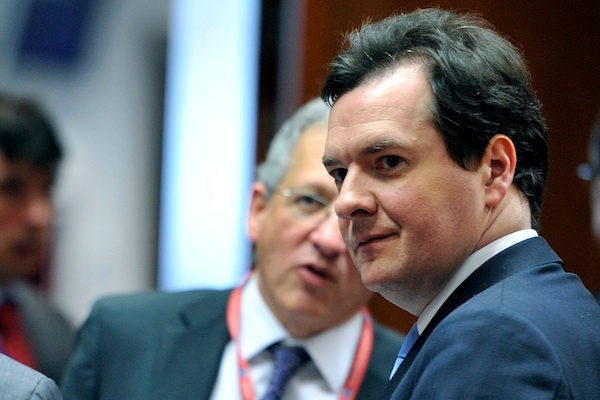1. The plan: To limit the bonuses that can be paid to bankers to the level of their salary. Any higher bonus would need the approval of shareholders (65 per cent of votes cast if a quorum of 50% of shareholders is reached; 75 per cent of votes cast otherwise) and a quarter of it would have to be deferred for five years — and even then the bonus could not exceed double the salary.
2. Where does the proposal come from? The European Parliament. MEPs insisted on the cap to be included in a package of banking reforms. Initially, they wanted simply wanted to cap bonuses at the level of salaries, but after negotiations with the European Commission and Ireland (as Presidency of the EU, on behalf of the member states) a compromise was reached last week including the possibility of bonuses worth twice as much as salaries. On Tuesday, the finance ministers of 26 of the 27 EU member states voted to accept the cap — only George Osborne voted against.
3. Why do they want it? Ostensibly ‘to curb excessive risk-taking’ and ‘encourage bankers to take a long-term view’. The idea that the bonus culture rewards success without penalising failure, and therefore encourages excessive risk-taking — and a focus on short-term successes rather than long-term stability — is a widely-accepted one. It is also thought by many to be one of the causes of the recent financial crisis. Supporters of the bonus cap therefore claim that it will reduce the risk of another crisis.
But the evidence for this is certainly far from conclusive. Indeed, a thorough study of Wall Street banks by Kevin J Murphy of the University of Southern California last year found that, in general, banks’ bonus schemes ‘reduce (rather than increase) incentives for risk taking’ and says that the factors that lead to the crash ‘have nothing (or little) to do with the Wall Street bonus culture’.
And there are doubtless other motives behind the bonus cap too: a desire to punish the bankers for the crisis, and a belief that they do not deserve the large bonuses they receive.
4. Reaction in the UK. David Cameron said:
‘We need to make sure that regulation put in place in Brussels is flexible enough to allow those banks to continue competing and succeeding while being located in the UK.’
George Osborne said:
‘Our concern is that it may have a perverse effect, it may undermine responsibility in the banking system rather than promote it. We all want to see what more we can do to increase the incentives for long-term bonus packages.’
Ed Balls called the proposals ‘sensible’ and said:
‘It shouldn’t take the European Union to rein in excessive bonuses, but George Osborne has dragged his feet and refused to act in Britain.’ He continued: ‘There should be fair rewards for performance, but it is right that there is action to rein in bloated bonuses which are a device for keeping traders focused on the weeks ahead, rather than years ahead.’
And in PMQs yesterday, Ed Miliband asked:
‘Why are the Prime Minister and the Chancellor the only people who think it is a priority to fight for bigger bonuses for bankers?’
In his inimitable way, Boris Johnson declared:
‘This is possibly the most deluded measure to come from Europe since Diocletian tried to fix the price of groceries across the Roman Empire’. He warned that ‘Brussels cannot control the global market for banking talent. Brussels cannot set pay for bankers around the world. The most this measure can hope to achieve is a boost for Zurich and Singapore and New York at the expense of a struggling EU.’
5. What happens next? With the backing of 26 countries, it seems highly likely that the cap will be enacted. The European Parliament will vote on it next month, and it looks set to pass with a sizeable majority. Once approved, each EU country would be required to incorporate it in national law by the beginning of next year.






Comments